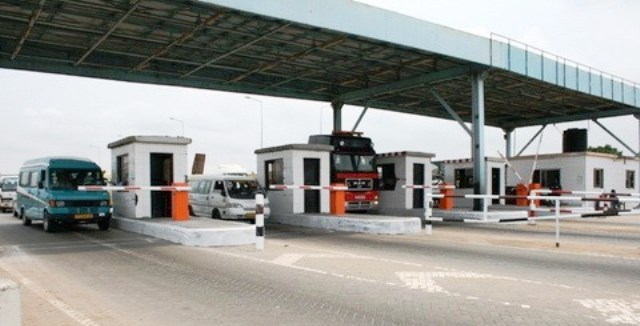…introduces 1.75% levy on MoMo, all electronic transactions
Government has proposed a new policy to abolish the collection of road tolls on all public roads and bridges in the country as part of measure to ease traffic flow in the country.
Announcing the new policy in the 2022 national budget in parliament, Finance Minister Ken Ofori Atta explained that the decision was taken to decongest tolling points across the country. “The tolling points have become unhealthy market centres, leading to heavy traffic on our roads, lengthening travel time from one place to another, and impacting negatively on productivity,” Mr. Ofori-Atta said.
He added that the congestion generated at tolling points not only creates inconveniences but also leads to pollution in and around those vicinities.
Mr. Ofori-Atta assured that personnel and workers are be affected by abolishment of the toll collection will be reassigned. Currently, there are about 30 tolling points in the country, with the majority situated in the Greater-Accra and Ashanti Regions.
Introduction of E-levy
To help improve revenue collection, the finance minister also announced a new tax of 1.75% that will be slapped on all electronic transactions if the budget is approved by the house – stating that the electronic levy (E-Levy) will affect mobile money payments, bank transfers, merchant payments and inward remittances.
The charges, he said, will be borne by the sender except for inward remittances which will be borne by the recipient. With the new levy, government is hoping to widen the tax net to help capture a majority of the public under the policy as digital transactions see an astronomical increase.
Exemptions under E-Levy
To sustain the gains made in enhancing financial inclusion and to protect the vulnerable, Mr. Ofori-Atta explained that all transactions that add up to GH¢100 or less per day will be exempt from the levy.
He added that a portion of proceeds from the levy will be used to support entrepreneurship, youth employment, cybersecurity, digital and road infrastructure, among others. “Government will work with all industry partners to ensure that their systems and payment platforms are configured to implement the policy,” he said.
Data on e-transactions
Data from the Bank of Ghana show that between February 2020 and February 2021 the country saw an increase of over 120% in the value of digital transactions compared to 44% for the period February 2019 – February 2020. Total value of transactions for 2020 was estimated to be over GH¢500billion compared to GH¢78billion in 2016, just 5 years ago.
Domestic revenue collection
To strengthen domestic revenue collection, Mr. Ofori-Atta said the Ghana Revenue Authority (GRA) – working with the Revenue Assurance and Compliance Enforcement (RACE), will continue with its enhanced compliance measures to expand coverage and plug revenue leakages.
He added that the Modified Taxation System introduced in 2015 through the Income Tax Act, 2015 is providing a simplified system of tax compliance for the informal sector and small-scale individuals in business. He hinted that the law will be amended to increase the threshold from GH¢200,000 to GH¢500,000 per annum.










